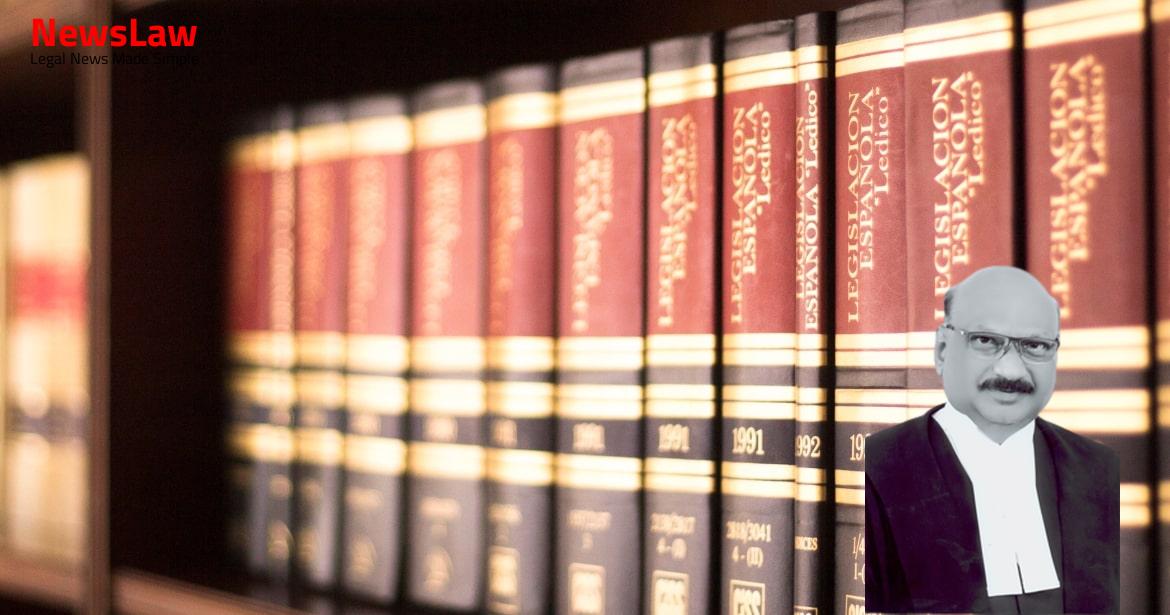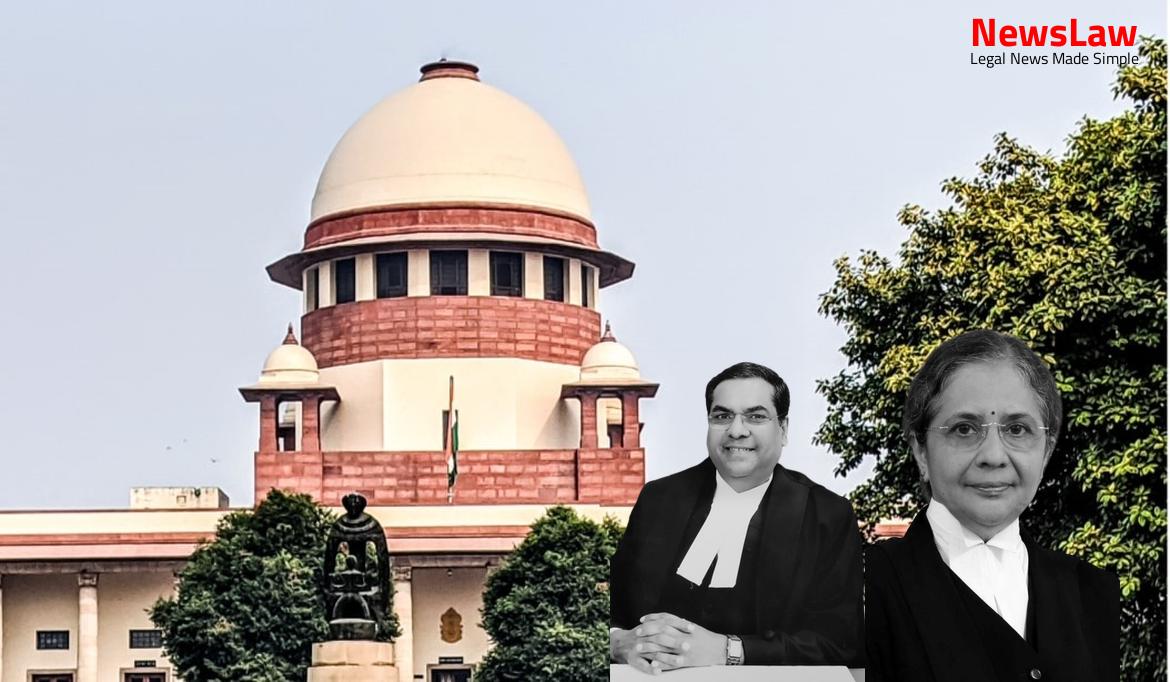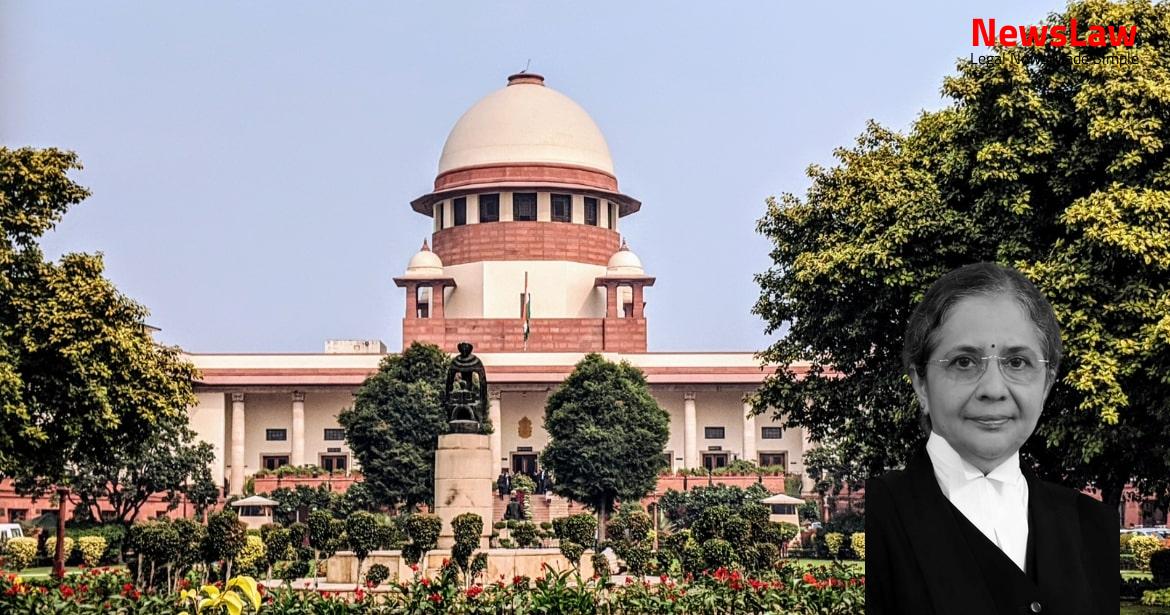Delve into the legal intricacies of interpreting conflicting clauses in a Will in a recent property dispute case. The court’s analysis focused on the precedence of absolute rights over subsequent bequests, providing significant clarity on testamentary intentions and property ownership. Stay tuned to understand the complexities of legal interpretations in estate planning and property transfers.
Facts
- The suit property was self-acquired by M. Srinivasa Murthy
- M. Srinivasa Murthy passed away in 2002 leaving a Will dated 07.06.1995
- The Will bequeathed the suit property to his wife, Nirmala Murthy, giving her a life interest
- Nirmala Murthy executed a sale deed in 2004 to the Appellants for Rs. 16,42,000
- The sale deed was paid in cash at the time of execution
- Nirmala Murthy passed away during the court proceedings
- Legal disputes arose regarding the sale deed and ownership of the property
- The High Court confirmed that both children of Nirmala Murthy were entitled to a share in the sale proceeds if a sale was made by her.
- Under the Will dated 07.06.1995, Nirmala Murthy had absolute rights to sell the property as long as it was done voluntarily.
- There was no evidence of fraud or coercion in the execution of the sale deed by Nirmala Murthy.
- The High Court upheld the Trial Court’s decision that Respondent No.1 was not bound by the sale deed, as it was against the testator’s intention and should have involved Respondent No.1’s consent.
- The High Court partially allowed R.F.A. No. 1888/2011 by affirming that Respondent No.1 was not bound by the sale deed.
Also Read: Preservation of Open Spaces in Development Plans
Arguments
- Petitioner argues that there is no bequest in the latter part of the Will in favor of Respondent No 1 for rights over the suit property.
- Citing legal precedents, Petitioner asserts that any subsequent right in favor of the children, in the event of property sale, would be invalid as it would be repugnant to Nirmala Murthy’s absolute right.
- The Will dated 07.06.1995 established Nirmala Murthy as the absolute heir to the suit property, giving her the authority to sell the property without consulting her children or informing them.
- The use of the word ‘desire’ in the Will implies that the sale proceeds can be divided among the testator’s children as per Nirmala Murthy’s wishes.
- The Respondent argued that the title did not pass to the Appellants through a deed without sale consideration.
- The validity of the deed and consideration were beyond the scope of the suit as filed by the Respondent.
- The dominant intention of the Will was to grant a life interest in the property to Nirmala Murthy, not an absolute bequest.
- The Respondent cited legal precedents where conflicting clauses in a Will were resolved in favor of the latter one.
- The sale deed of 25.02.2004 was executed under suspicious circumstances as noted by the Trial Court and High Court.
- The Respondent’s reliance on a specific legal case for interpreting Will clauses was deemed misplaced due to differences in the clauses at hand.
- The Respondent pointed out clauses in the Will indicating an intention to settle the properties on the children and provide them with a share in the sale proceeds.
Also Read: Jurisdictional Limits and Statutory Compliance in Development Planning
Analysis
- The High Court erred in finding that the sale deed executed by Nirmala Murthy was against the intention of the testator as it was executed without the knowledge of Respondent No 1.
- No provision in the Will indicated a requirement for Nirmala Murthy to consult with her children for subsequent property transactions.
- The absolute right given to Nirmala Murthy over the property precluded the children from succeeding to the property.
- Sale deed executed by Nirmala Murthy was found to be in accordance with the Will dated 07.06.1995 and was binding on Respondent No 1 as well.
- Interpreting the Will to restrict Nirmala Murthy’s ability to sell the property without consulting her children would be contrary to the Will’s wording.
- The sale deed was held valid and the Appellants were entitled to possession of the property, leading to the dismissal of Respondent No 1’s suit and the decreeing of the Appellants’ ejectment suit.
- The well-known maxim ‘cum duo inter se pugnantia reperiuntur in testamento ultimum ratum est’ dictates that in a Will, if there are two inconsistent provisions, the latter shall prevail over the earlier.
- Under a Will, if a testator bequeaths his absolute interest in the property to his wife, any subsequent bequest that contradicts the first one will be considered invalid.
- If a testator grants a restricted or limited right in his property to his widow, the rules set out in the case of Rameshwar Bakhsh Singh v. Balraj Kuar will apply.
- In this case, there is no inconsistency in the clauses of the Will as the house property was absolutely bequeathed to Nirmala Murthy with no conflicting bequest following it.
- The provision in the Will regarding the sale of the property during the widow’s lifetime and the distribution of proceeds to the children is considered a mere expression of desire and not a valid bequest.
- Even if the latter clause creating a bequest in favor of the children is considered valid, the first clause establishing an absolute right in favor of Nirmala Murthy will take precedence.
- The decision in Mauleshwar Mani provides relevant observations supporting the precedence of an absolute right over subsequent conflicting bequests.
Also Read: Rights of Mirashi Tenant in Mortgage Redemption Case
Case Title: M.S.BHAVANI Vs. M.S.RAGHU NANDAN (2020 INSC 280)
Case Number: C.A. No.-001798-001799 / 2014



